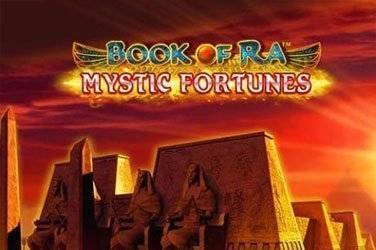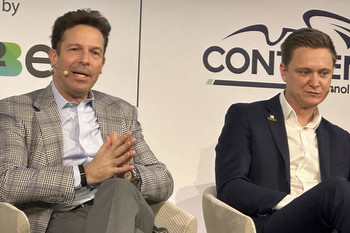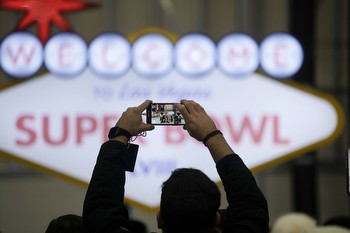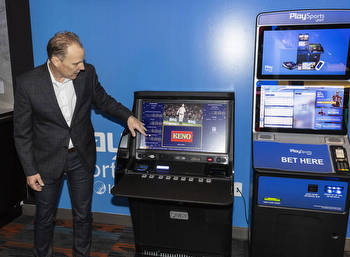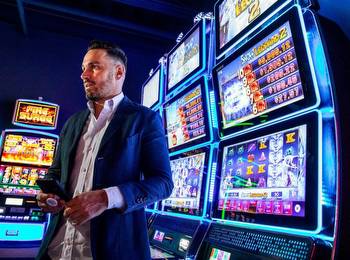As gaming grows in US, Las Vegas remains a leader
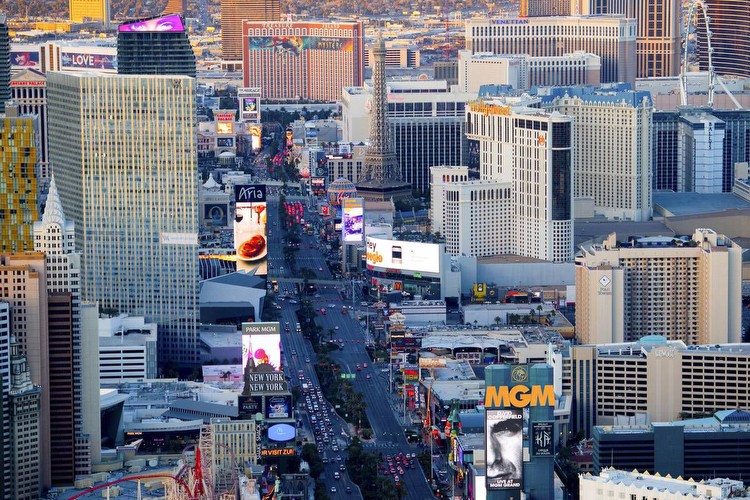
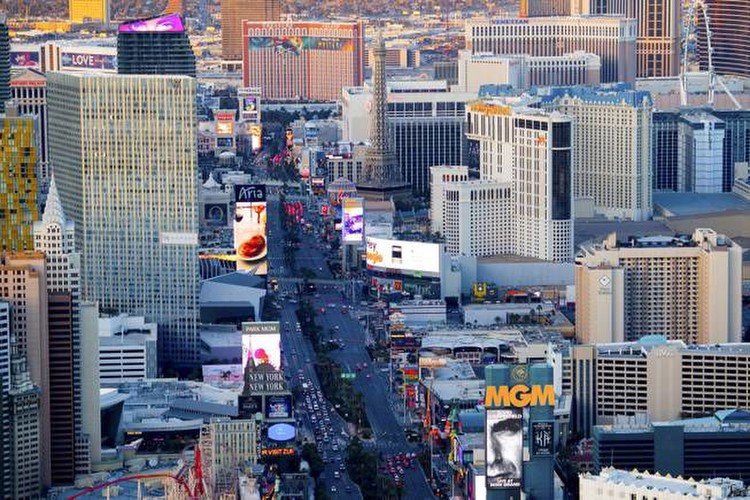
Tom Donoghue / DonoghuePhotography.com
An aerial view of the Strip.
Monday, Jan. 8, 2024 | 2 a.m.
There was a time not long ago when gaming in the U.S. was almost entirely centralized in Nevada, and society would look down its nose at the state for its grip on the “unsavory” gambling enterprise, said Michael Rumbolz, the newly appointed chairman of the American Gaming Association and a Las Vegas native.
Now, however, gaming is sweeping the nation — and it’s just getting started.
With 35 states and Washington, D.C., operating in the gaming sphere in some capacity, the industry contributes nearly $329 billion to the U.S. economy each year, supports 1.8 million jobs and generates $52.7 billion in tax revenue, according to the AGA.
“What I’ve seen over the last 20 years is, we’re really in the golden age of gaming,” Rumbolz said. “From my point of view, there’s more gaming opportunities in more places throughout North America than there ever have been — at least in my lifetime, but I think, probably, in history.”
The growth in gaming has been driven “first and foremost” by its changing demographic, Rumbolz said. The average age of a gaming customer, whether on the casino floor or online, is getting younger.
The typical sports betting and slot machine demographics are both changing, Rumbolz said. The average customer playing slots in a casino is no longer in their 50s or 60s, he said, but in their 40s, and the average online gaming customer is also in their 40s.
With its potential customer base growing, gaming in the U.S. is broadening and widening as an entertainment business, Rumbolz said.
“There is a larger percentage of Americans that are prepared to look at any style of gaming that’s available as another entertainment source for them, or outcome that they can get involved with,” he said. “Given the price today of the various entertainment venues that are available, casino gaming is a fairly rational alternative to the average person.”
The success of gaming in Las Vegas is inseparable from that of entertainment, which saw a “blockbuster year” in 2023, said Brett Abarbanel, executive director of UNLV’s International Gaming Institute. Last year, Las Vegas proved that entertainment and gaming can work together successfully, Abarbanel said.
And going into 2024, Las Vegas is welcoming about 130,000 people to town this month for the annual Consumer Electronics Show, and is hosting its first Super Bowl on Feb. 11.
“And so this is just continuing,” Abarbanel said. “We didn’t really take a break into the new year to kind of cool off and then go into the next. It’s these major events that have been coming in that really are also tied to a lot of gaming success.”
The gaming industry is going into the new year not without a few challenges, however.
One important issue is cybersecurity, Abarbanel said, which Las Vegas resorts learned the hard way in 2023 when MGM Resorts International and Caesars Entertainment experienced crippling cyberattacks.
Abarbanel predicted that the gaming industry will continue to reexamine the status quo in regard to cybersecurity, and particularly when it comes to personal information in gaming accounts. The industry may have to consider sacrificing some user convenience to ensure cyber safety, she said.
“There’s a lot that I think will come out of this that will, one, really change what cybersecurity means to major organizations,” she said. “And then that will also, I think, become much more evident to the end user in a way that we haven’t really noticed before necessarily, simply because it will mean things like more transparency and more data sharing — that kind of thing.”
Meanwhile, the AGA is continuously cracking down on illegal gaming, Rumbolz said, another prevalent issue in the industry. Gaming jurisdictions last year lost tens of billions in tax revenue, Rumbolz said.
“There’s still a very large illegal gaming community that’s out there, that is continuing to siphon away not just profits from gaming companies,” he said. “… It’s the tax dollars that are being lost by the jurisdictions that allow gaming that, to me, is the biggest crime.”
On the other hand, there’s some particularly exciting outlooks for gaming operators. And Rumbolz said one of the most exciting is the potential expansion of online, casino-style gaming.
“Much as they have streaming film now in movies or online — or you can go to the theater — the same thing can, and should be true, in my view, in virtually any jurisdiction that has casino-style gaming,” Rumbolz said. “They should also offer online casino-style gaming, and make it easier for the people that live there to decide on their own whether they want to go to a casino or they want to stay home.”
Another aspect of growth in gaming that may be worth keeping an eye on is the effect of influencers on the industry, Abarbanel said, citing well-known figures like Brian Christopher — who has gained millions of monthly viewers and subscribers on his YouTube channel and other social media profiles playing the slots.
She also mentioned the impact of celebrities and athletes who are not in the sports-betting sphere, pointing to the effect of singer-songwriter Taylor Swift’s relationship with Kansas City Chiefs tight end Travis Kelce, which has introduced a whole new audience of fans not just to the NFL, but to the world of sports betting too.
“I think it’ll be really interesting to see how influencers affect views on gambling,” Abarbanel said. “Whether that’s sports betting or just gambling in general.”
Even as other destinations for gaming open up, Rumbolz said, Las Vegas will still be “the big show.” The city has spent billions on its gaming infrastructure, he said, and the result is a number of hotel-casinos in the area that is “unparallelled” in the U.S. and perhaps even the world.
“Much like baseball has a major league and a minor league,” Rumbolz said, “I think Vegas is going to be in the major leagues for a while.”
[email protected] / 702-990-8926 / @_katieann13_







